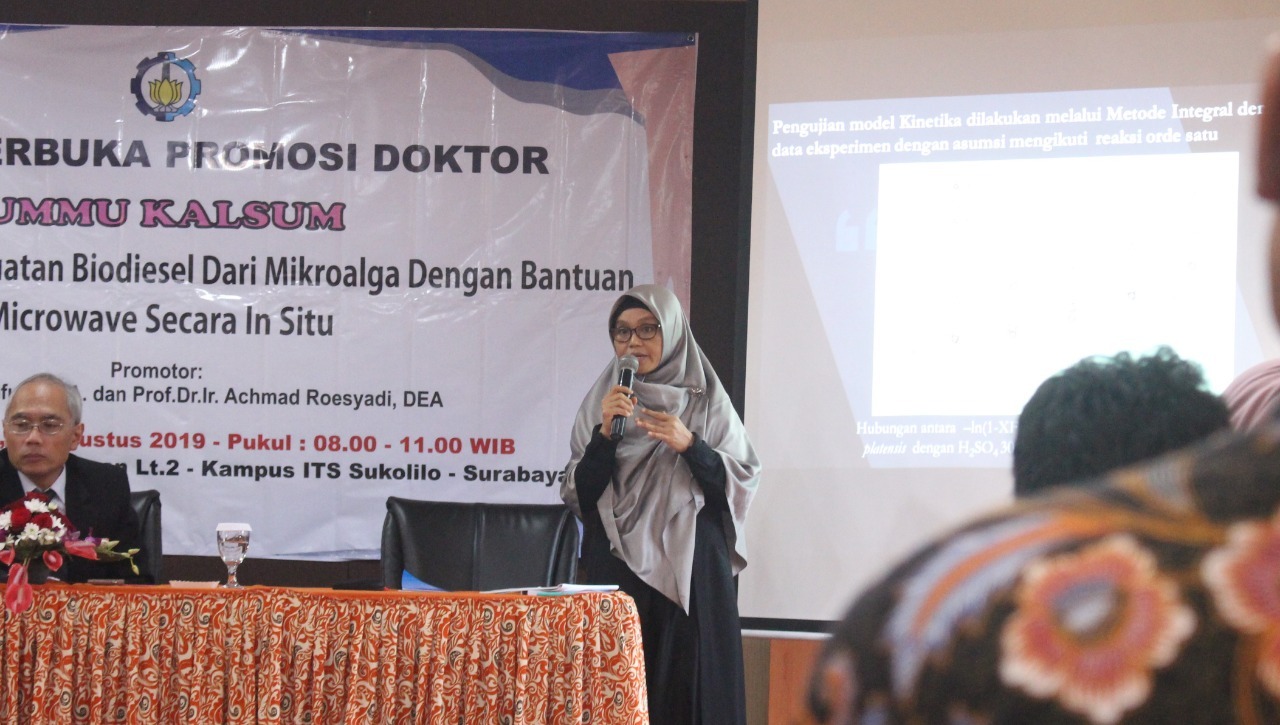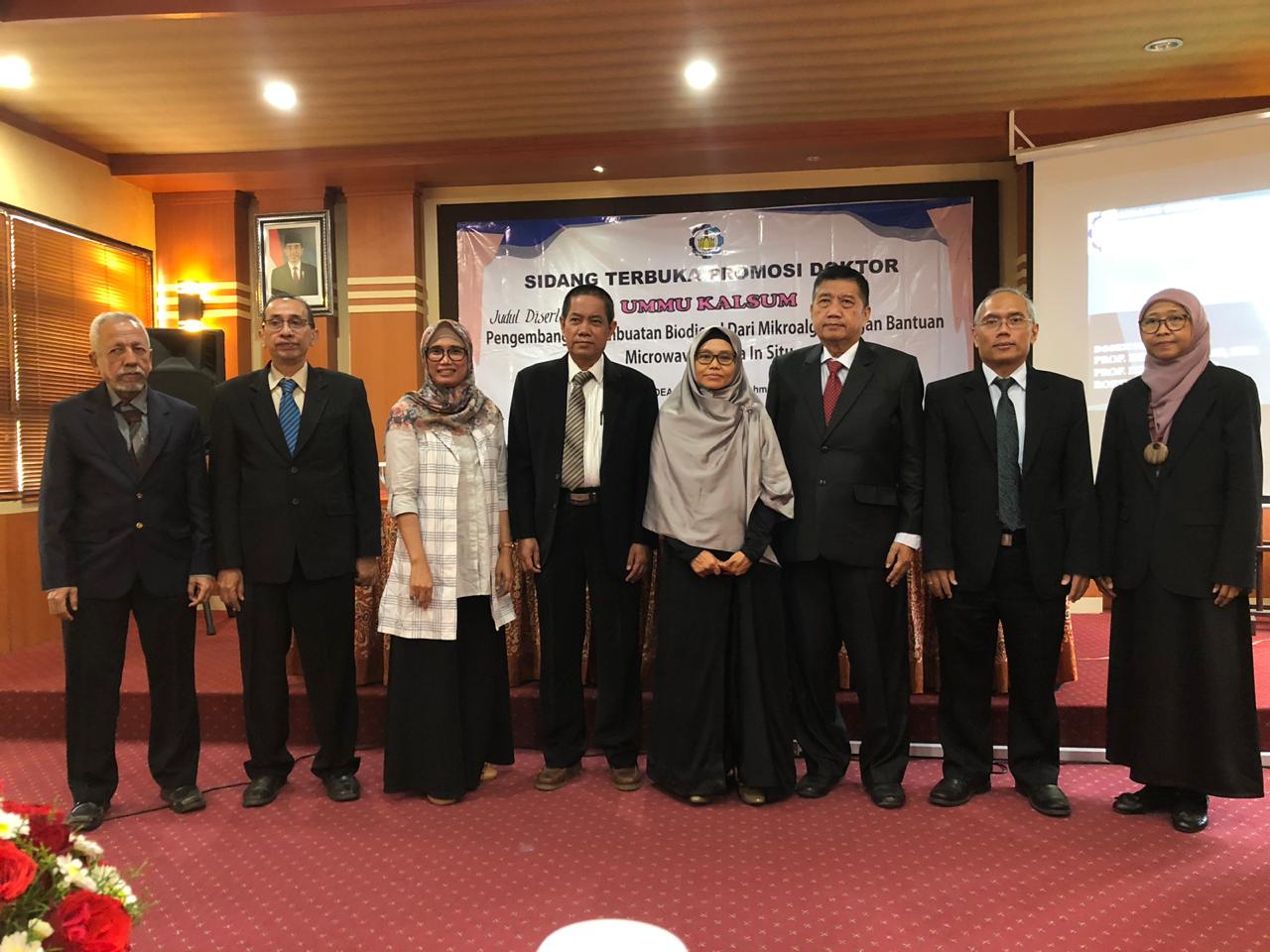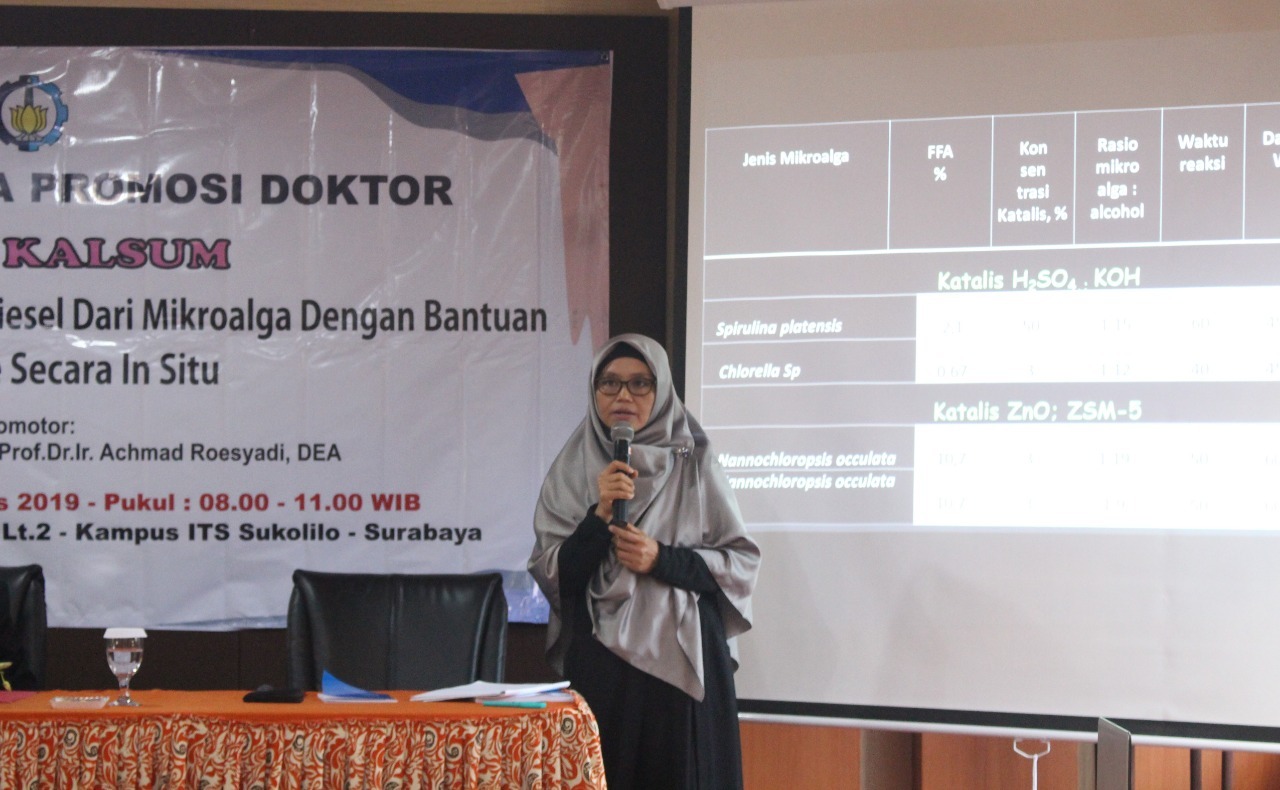ITS Doctorate Promotes Microalgae as Biodiesel Raw Material

Ummu Kalsum when presenting her dissertation in an open session at the ITS Chemical Engineering Doctorate Promotion
ITS Campus, ITS News – Microalgae lately has become a commodity that is widely considered as an alternative raw material for biodiesel production. This is one of the things that underlies the doctoral student of the Chemical Engineering Department of Institut Teknologi Sepuluh Nopember (ITS), Ummu Kalsum, raised the research title of Development of Biodiesel Production from Microalgae with the help of In Situ Microwave as her dissertation.
Through this research, Ummu Kalsum was declared to have passed the doctorate in the open session of the doctorate promotion which was held on Friday (16/8). The woman who also works as a lecturer in Chemical Engineering of Universitas Muslim Indonesia (UMI) Makassar explained that her research aims to examine the potential development of biodiesel from microalgae through in situ transesterification reactions.

Ummu Kalsum (four from right) along with the ranks of the promoters and the examiners of the open session doctorate promotion of ITS Chemical Engineering
She mentioned that the microalgae used in her research are the green microalgae of Chlorella Sp, Spirulina platensis, and Nannochloropsis occulata types. Furthermore, the 1969-born woman explained that the microalgae entered the transesterification process using the homogeneous catalyst, namely KOH and H2SO4, as well as the heterogeneous catalyst, namely the ZnO and the ZSM-5.
Ummu explained that the use of the catalyst was determined by the lipids produced by microalgae in the extraction process. In microalgae that produce low free-fatty acids such as Chlorella Sp, the catalyst used is the base catalyst. “Conversely, for microalgae that produce high fatty acids are processed using an acidic catalyst,” she explained.

Ummu Kalsum when presenting her dissertation in an open session at the ITS Chemical Engineering Doctorate Promotion
In this research, Ummu used microwaves as a heating method replacing conventional heating methods. According to her, the use of microwaves causes the reaction time needed to produce biodiesel faster. “Besides that, the product content resulting from the reaction using microwaves is more than using conventional heating,” she said.
Regarding the prospect of using microalgae as a biodiesel producer in Indonesia, this woman considered Indonesia has a great prospect. Ummu explained that because Indonesia is a tropical country that gets abundant exposure from the sun. The sun itself is an important component in the photosynthesis of microalgae.
Not only that, the mother of three children added, microalgae is a third-generation raw material that does not compete with its function as food material. In its cultivation, microalgae also do not require much land. This is a value-added of the microalgae compared to other biodiesel raw material.
However, Ummu claimed she was not been satisfied with the results of her research yet. According to her, further research is still needed, especially in the process of the purification of the biodiesel. She also did not rule out the fact that the biodiesel has not fulfilled the Indonesian National Standard (SNI) for biodiesel. (fat/gayatri/ITS Public Relation)
Related News
-
Faithful in Times of Joy and Sorrow, Married Couple Graduate with Doctorates Together at ITS
ITS Campus, ITS News — As though guided by one heart and one soul, Dr Hanugra Aulia Sidharta ST
August 22, 2019 14:08 -
ITS Wins 2024 Project Implementation Award for Commitment to Gender Implementation
ITS Campus, ITS News —Not only technology-oriented, Institut Teknologi Sepuluh Nopember (ITS) also show its commitment to support gender
August 22, 2019 14:08 -
ITS Professor Researched the Role of Human Integration in Sustainable Architecture
ITS Campus, ITS News –The developing era has an impact on many aspects of life, including in the field
August 22, 2019 14:08 -
ITS Sends Off Group for Joint Homecoming to 64 Destination Areas
ITS Campus, ITS News — Approaching Eid al-Fitr, the Sepuluh Nopember Institute of Technology (ITS) is once again facilitating academics who want
August 22, 2019 14:08
